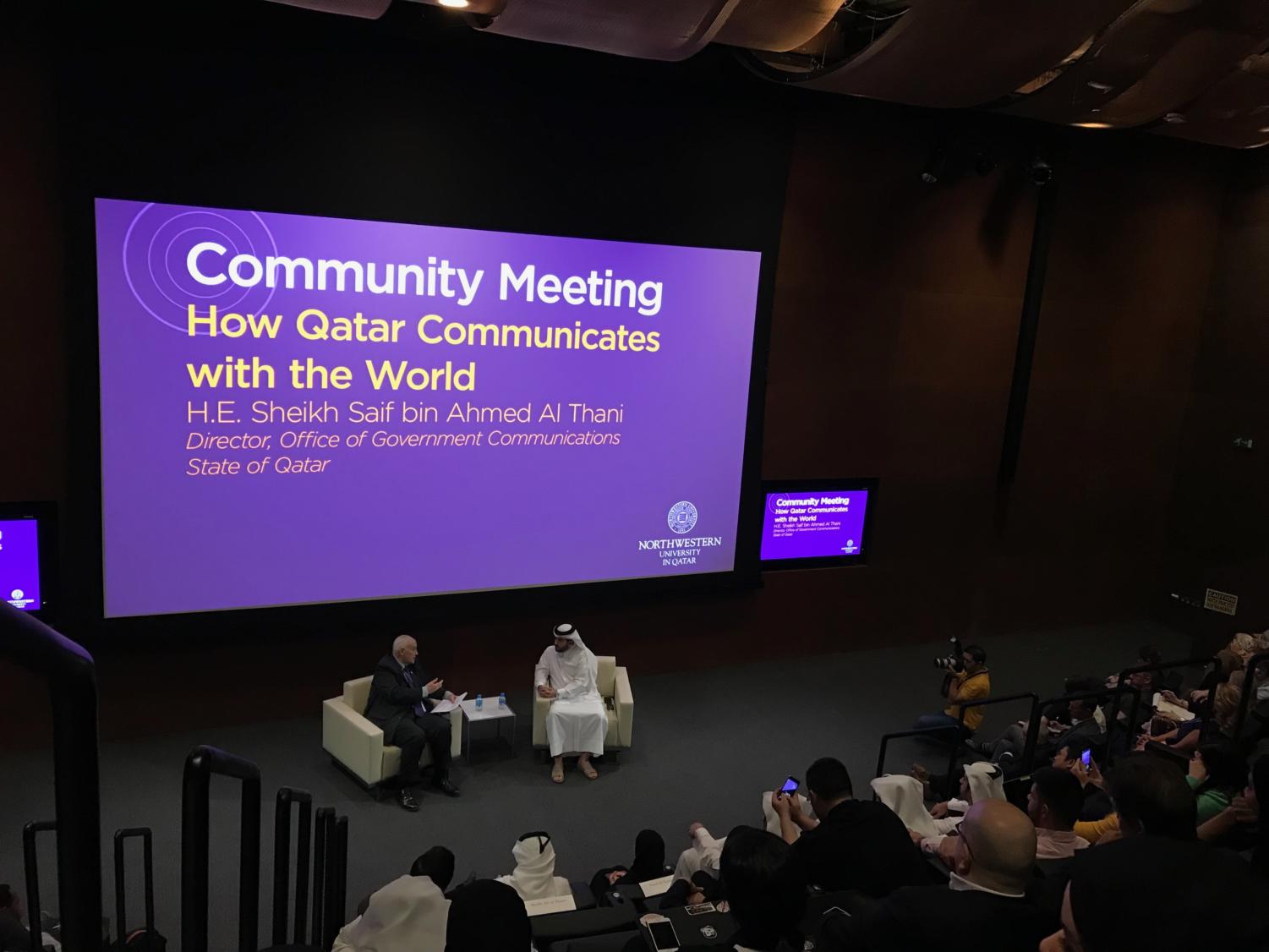Director of Qatar’s communications office discusses Qatar’s blockade
Sheikh Saif bin Ahmed Al Thani, director of Qatar’s government communications office, at a community event at Northwestern University in Qatar on Nov. 15. Photo provided by NU-Q
The tension between Qatar and its neighboring countries has been ongoing for the past few years, said Sheikh Saif bin Ahmed Al Thani, director of Qatar’s Government Communications Office, at a community event at Northwestern University in Qatar on Nov. 15.
The political instability between some of the GCC countries became evident by the recalling of their ambassadors from Qatar in 2014, he said, to an audience of more than 100. “Regarding the blockade specifically, I can talk about this for four hours because the issue started way before 2017,” Al Thani said.
“We have relationships, but we also have differences with them,” he said, referring to the countries involved in the blockade against Qatar. “As state officials, we are willing to sit on the table to have a dialogue with the blockading countries,” he added.
Al Thani said that after the blockade began, some people in Qatar questioned the way local media handled the crisis; for example, some complained that local news organizations did not respond adequately to false claims about the country. However, Al Thani said that others thought it was a good decision not to. “I think the local media was simply reflecting the society, of what people are thinking here,” he added.

He said that false information about Qatar, such as the claim that it supports terrorism, came out from various news outlets in the blockading countries, but “when we release statements, we release facts, and we try to do it as clearly as possible. We can easily do the same method they chose to do, but we stick to our principles, and that is mainly our approach,” he said.
Banu Akdenizli, an associate professor of the communication program at NU-Q, said that she did not get any additional information or insider information on the crisis that she did not already know. But “it was interesting to observe from the Sheikh’s comments that of all the GCC countries, Saudi Arabia continues to be the most adversary.”
“The local media in the region has been reporting on the crisis from a nationalistic perspective, from their own point of view,” she said. “Social media and fake news continue to be the site where the major information warfare is being held. It all started with fake news as you know,” she added.
Salwa Sadek, a journalism sophomore at NU-Q, said she gained more insight into how things work behind the scenes in the government ministries in Qatar. She said political discourse is very important specially for students like her. “I think having political discussion feeds the brain,” she said.
Ilhem Allagui, an associate professor of journalism and strategic communication program, said she was glad a senior representative of the government came to speak at NU-Q. “It shows how committed our school is to providing us, students, faculty and staff, with opportunities of exchange with the larger community, at its highest level, to ask questions and contribute to ongoing social conversations,” she said. “My learning from the conversation is that there is a consistency between the way the GCO communicates with its wider audience and what was communicated to the NU-Q community,” she added.













